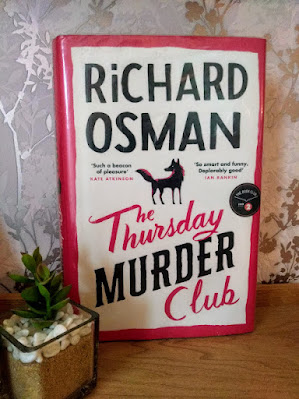In the original Roman calendar November was the ninth month of the year. It got its name from the Latin word "novem" which means nine. However, it became the eleventh month when the Romans added January and February to the start of the year.
In the year 835 AD the Roman Catholic Church made the 1st of November a church holiday to honour all the saints. This feast day is called All Saints' Day which also used to be known as All Hallows (Hallow being an old word meaning Saint or Holy Person). The feast day actually started the previous evening, the Eve of All Hallows.
On the 4th November 1922, one of the most important archaeological discoveries of modern times occurred at Luxor, Egypt when the tomb of the child-pharaoh of Egypt was discovered by English archaeologist Howard Carter. Tutankhamen became pharoah at the age of nine and is thought to have died in the year 1352 BC, when he was 19.
The 5th November is Guy Fawkes Night (Bonfire Night).
🎂The 7th November is my darling daughter's birthday.
And on this day in 1867 Marie Skłodowska Curie was born. A Polish-born French physicist and chemist, Marie Curie is famous for her work on radioactivity and the first person ever to receive two Nobel Prizes. In 1903, she became the first woman to win a Nobel Prize for Physics. The award, jointly awarded to Curie, her husband Pierre, and Henri Becquerel, was for their discovery of radioactivity. Her second Nobel Prize for Chemistry in 1911 for the discovery of the radioactive elements polonium and radium.
On the 8th November 1895 Wilhelm Röntgen, a German professor of physics, discovered the X-ray, while experimenting with electricity.
Also on the 8th November 1920 Rupert Bear was "born". The Daily Express published the first Rupert Bear strip cartoon.
On the 9th November 1989, the Berlin Wall separating Western and Eastern Germany was opened, allowing citizens from both east and west to cross freely.
On the 10th November 1983 Microsoft Corporation formally announced Microsoft Windows 1.0
 November the 11th is remembrance day. At the eleventh hour of the eleventh day of the eleventh month in 1918 the Allies and the Central Powers ended WWI with the signing of an armistice agreement. People remember the millions of soldiers who died in the two World Wars and in other wars by wearing a poppy and taking part in a two minute silence at 11am.
November the 11th is remembrance day. At the eleventh hour of the eleventh day of the eleventh month in 1918 the Allies and the Central Powers ended WWI with the signing of an armistice agreement. People remember the millions of soldiers who died in the two World Wars and in other wars by wearing a poppy and taking part in a two minute silence at 11am.
On the 18th November 1307 William Tell, a Swiss patriot, refused to pay homage to the Austrian Governor. As a punishment he was made to shoot an arrow through an apple placed on his son's head.
Taking his bow, William Tell aimed. His arrow split the apple, and his son's life was spared.
On the 23rd November 1963 the first episode of Dr Who was broadcast. It was in black and white and starred William Hartnell as the Doctor.
America celebrates Thanksgiving Day on the fourth Thursday in November. It dates back to 1621, the year after Pilgrims from England arrived in Massachusetts.
The Pilgrims were the first settlers of America. They sailed from England in September 1620, on a small ship called the Mayflower, in the hope of finding a new home where they could live in peace and freely practice their faith. It took them 66 days to reach America.
Only half of the 110 Pilgrims survived that first year. Many died during the first winter. The survivors turned for help to neighbouring Indians, who taught them how to plant corn and other crops. The next Autumn the harvest was plentiful and inspired the Pilgrims to give thanks by holding a three-day feast. 200 years later, in 1863 President Lincoln proclaimed the last Thursday of November a national day of thanksgiving. In 1941 the US Congress passed a law officially establishing the celebration of Thanksgiving.
The last Sunday of the Church Year, the Sunday before Advent is often called 'Stir-up Sunday', the traditional day for everyone in the family to take a turn at stirring the Christmas pudding. Before Christmas puddings were sold ready-made, they were always made at home. They were made a month before Christmas day to give the flavours plenty of time to develop. Families returned from Church to give the pudding its traditional lucky stir which was always stirred from East to West in honour of the three Wise Men. Whilst stirring the pudding mixture, each family member would make a secret wish.
A Christmas pudding is traditionally made with 13 ingredients to represent Christ and His Disciples.
A coin was traditionally added to the ingredients and cooked in the pudding. It was supposedly to bring wealth to whoever found it on their plate on Christmas Day. The traditional coin was an old silver sixpence or threepenny bit.
Other traditional additions to the pudding included a ring, to foretell a marriage, and a thimble for a lucky life.
C.S. Lewis was born on the 29th November 1898. As well as a writer he was also a professor, teaching university students at Oxford and Cambridge. He is best known for his series 'The Chronicles of Narnia". The Lion, the Witch and the Wardrobe is his most famous book. The Narnia books have been translated into more than 45 languages.
The 30th November is St Andrew's Day, celebrated in honour of St Andrew, the patron saint of Scotland.
∼ Be safe and well∼
Polly x

.jpg)
















